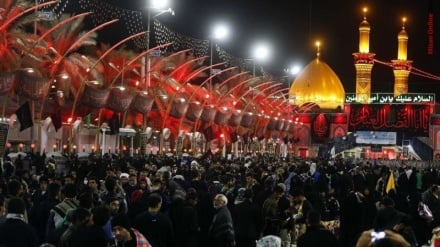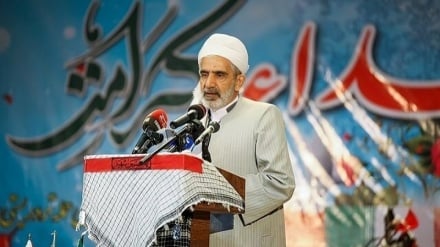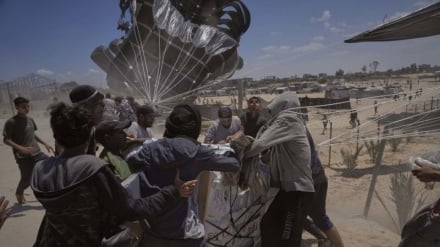What do you know about Arbaeen, the world’s largest peaceful gathering?
-
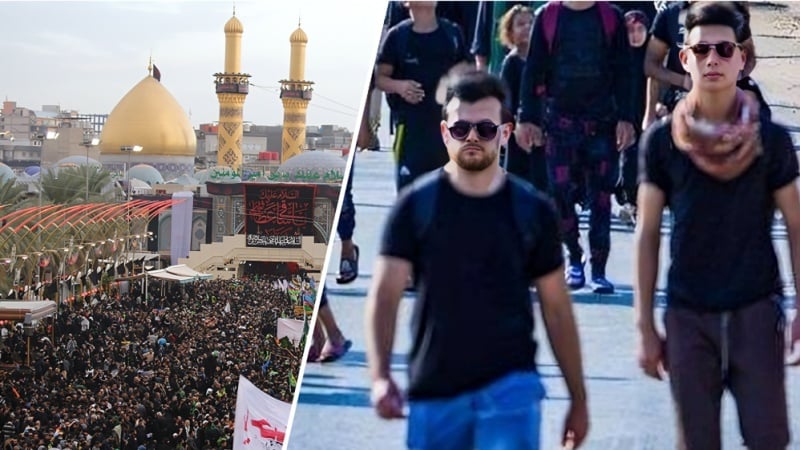
What do you know about Arbaeen, the world’s largest peaceful gathering?
Pars Today – In a world where much of the news revolves around tensions and wars, there is a ceremony that annually brings together millions of people from across the globe—not to protest, nor to display power, but to remind humanity of one profound truth: standing up against oppression. This ceremony is called “Arbaeen.”
While many religious ceremonies around the world are held with elaborate rituals, Arbaeen presents a different face of spirituality—marked by simplicity, solidarity, and selflessness. This event is not only significant for the followers of the Ahl al-Bayt (peace be upon them), but also offers every free human being an opportunity to reflect on the concepts of justice and truth. This article from Pars Today takes a closer look at this ceremony.
What does Arbaeen mean?
Literally, Arbaeen means “forty.” In Islamic terminology, it refers to the fortieth day after the martyrdom of Imam Hussein (peace be upon him), the grandson of the Prophet Muhammad (Blessings of God upon him and his progeny), during the Battle of Karbala. This day falls on the 20th of the lunar month of Safar in the Islamic calendar. For Shia Muslims, Arbaeen symbolizes loyalty, mourning, and the renewal of commitment to the human ideals championed by Imam Hussein.
However, Arbaeen is not just a religious occasion. Over time, it has become the world’s largest peaceful pilgrimage, where more than 20 million people from various countries—speaking different languages and belonging to diverse races and religions—journey toward the city of Karbala in Iraq to reach the shrine of Imam Hussein.
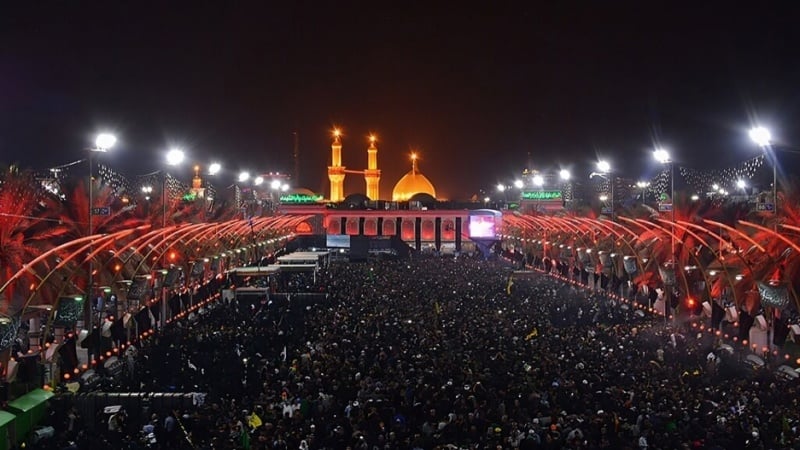
The event of Karbala
To understand Arbaeen, one must know the event of Karbala. In the year 680 AD, Imam Hussein (peace be upon him), along with his family and companions, stood against the corrupt and oppressive Umayyad regime. He refused to pledge allegiance to Yazid, the caliph at the time, and as a result, was besieged in the desert of Karbala. On the day of Ashura, he and 72 of his companions—including his six-month-old child—were martyred.
This event is not only significant for Muslims but stands as a symbol for every free human being of resistance against oppression, loyalty to truth, and sacrifice for human values. For this reason, Arbaeen is not merely a religious ceremony but a moral and human declaration.
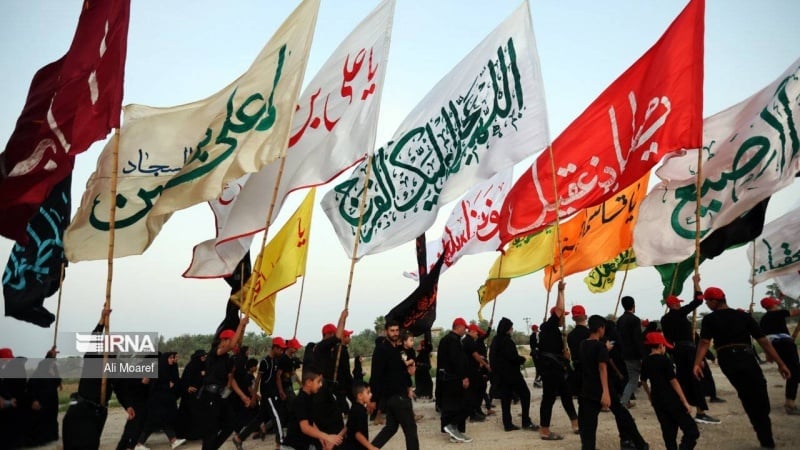
The Arbaeen Walk
Imagine millions of people from Iraq and various countries walking for kilometers to reach Karbala. Some walk from Najaf, another holy city in Iraq, covering the 80-kilometer route to Karbala in three days. Along the way, thousands of mawkibs (service stations) are set up by local people, offering food, water, resting places, medical services, and even free massages—all provided with love and without any expectation of payment.
This pilgrimage is a profound experience of empathy, selflessness, and human unity. Participants, regardless of nationality, religion, or language, walk together, pray, share meals, and shed tears in memory of the martyrs of Karbala. For many, this journey is not just a visit but a spiritual renewal.
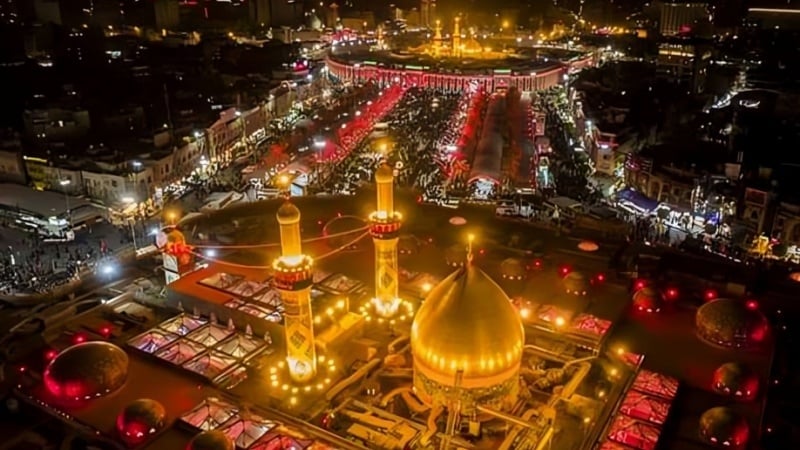
Arbaeen and intercultural dialogue
In recent years, the Arbaeen ceremony has attracted the attention of international media. Networks such as BBC, CNN, and Al Jazeera have reported on the event, calling it “the largest human gathering in the world.” Unlike many other religious ceremonies that often take place within specific frameworks, Arbaeen provides an open space for intercultural dialogue.
Non-Muslims also attend the event; some are researchers, journalists, or social activists who come to witness this unique phenomenon. Many of them are amazed by the level of hospitality, organization, and spirituality of the gathering.
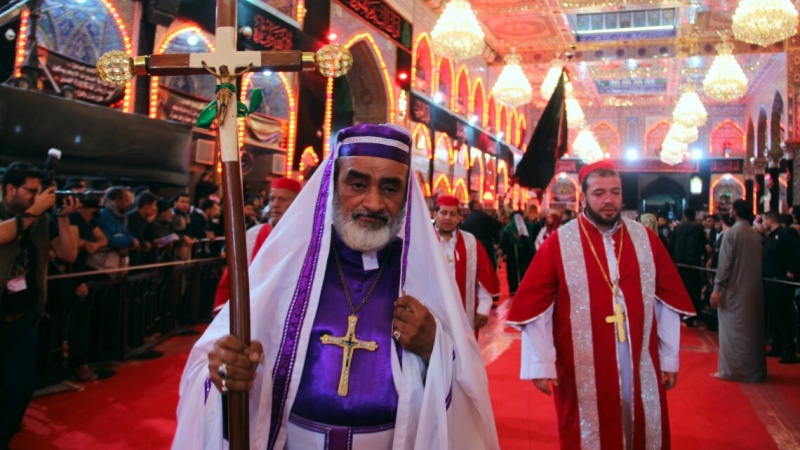
The global message of Arbaeen
If we were to summarize the message of Arbaeen in one sentence, it might be: “Humanity stands against oppression beyond borders and religions.” Imam Hussein fought in Karbala not for power, but for truth. He was willing to sacrifice his own life and those of his loved ones to show that silence in the face of injustice is a betrayal of humanity.
Arbaeen is a reminder of this message. Millions of people walk on foot, with hearts full of love and tears, toward Karbala to declare: “We stand with the oppressed; we stand with the truth.”
